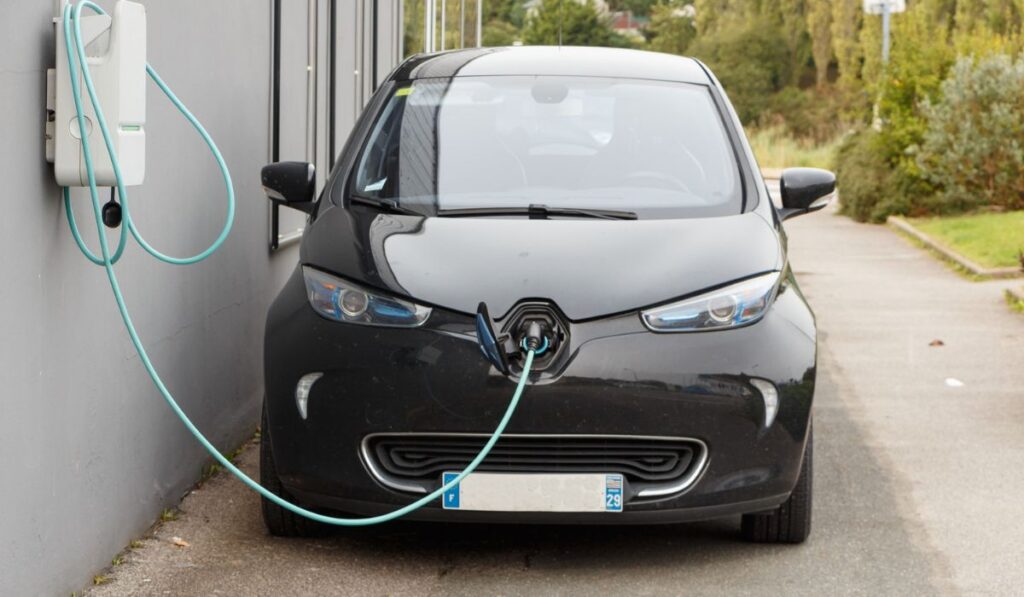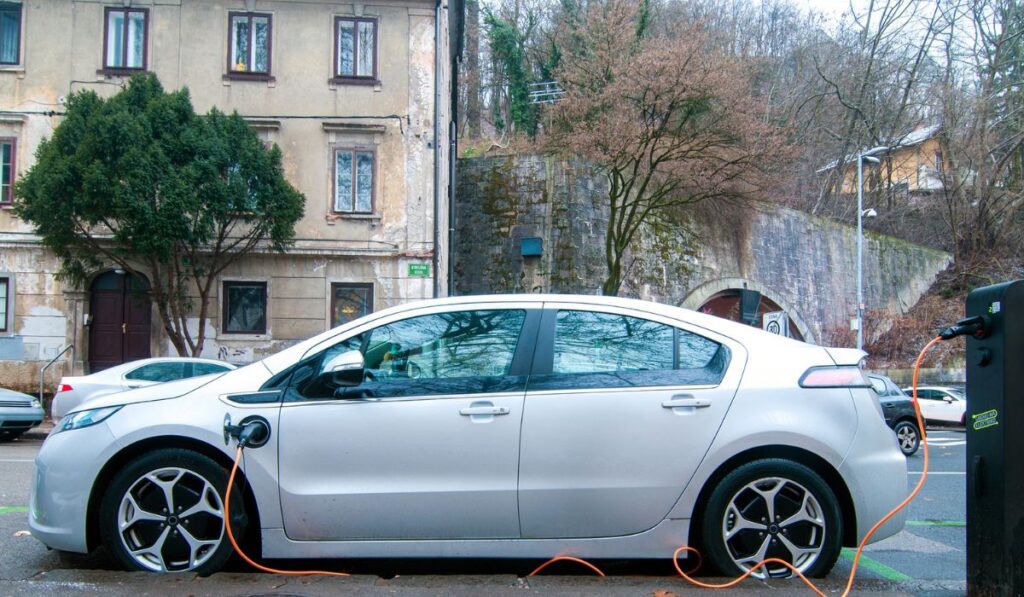When advancing widely used technology, it’s always a relief to learn about product makers approaching their innovations with caution. The auto industry makes no exception to this guidance, and rightly so. However, with the ever-growing use of electric cars comes a looming question: are they safe?
Electric cars are generally safer and less prone to the safety concerns imposed on conventional vehicles. Not only do electric cars house fewer moving parts, but they also operate without flammable fuel, significantly reducing their danger to people and the environment.
Let’s take a look at all things pertinent to the safety of electric cars so that, by the end of this article, you’ll have gained insight into their safety advantages over traditional rivals and why people still remain a bit stubbornly concerned about the dangers they might pose to people.
Common Electric Car Safety Features

An electric car skeptic might find it helpful to learn that all-electric vehicles licensed for production are subject to much of the same safety tests as combustion engine vehicles.
After passing their intense tests for safety verification, including a crash test, immersion test, combustion test, and water resistance tests, EV batteries are fitted onto electric vehicles. But any electric car set to be sold must first comply with set design regulations.
The majority of these standard features serve to ensure the vehicle’s safety. This is not to say that EVs are not without their safety concerns. It is reported that the power source is among the biggest EV concerns.
The lithium-ion batteries are not without risk, though. Combustion, to be specific. The battery houses power cells that can cause short-circuiting when damaged. In terms of probability, however, lithium-ion batteries are far less likely to explode than their gasoline-powered counterparts.
Protective Cooling
To prevent EVs from any external damage or chance of short-circuiting, their batteries are usually insulated with a shroud of protective cooling. This mechanism is filled with coolant liquid.
Array Fitted
To bolster safety measures, EV batteries are also fitted as an array instead of a single lithium-ion battery. This works well to both manage the production side of the batteries but also to quarantine or otherwise separate problems in the battery. If one cell in one section of the battery fails, it doesn’t automatically mean the whole battery has to fail.
Other Safety Features
There is more to EVs than innovation and flashy, futuristic designs. Inherent in their design are key safety features that render them far safer than their gas-powered counterparts. Consider the following:
The Temperature Range
A battery made of lithium-ion comes with a far shorter operation range. Precisely, it lies between 15 to 45 degrees. Modern standard vehicles are at a disadvantage in this regard. This is mostly because they are designed to work in temperatures ranging from minus 30 to heat greater than 50 degrees celsius.
Staying within this particular temperature range is essential, and EVs use either fluid or air, in addition to cooling management and monitoring systems. It’s highlighted as a highly recommended benefit for the overall safety of the battery and vehicle occupants.
Electrolyte
It is that, in certain circumstances, the electrolyte in lithium-ion batteries can catch fire. To counter this danger, manufacturers consider dividing the battery into small cells set apart by fire-walls.
Some engineers are even looking into less hazardous electrolytes. Possibly, these will be less flammable and give out fewer chemicals.
Are Electric Cars Dangerous To Pedestrians?
Authorities and lawmakers are deeply considering how electric cars affect how people typically interact with vehicles daily. They also assess whether any danger can arise as a result.
With the growing number of electric-powered cars currently on public roads, the question of whether EVs are a danger to their occupants is followed by another––are they a danger to nearby pedestrians.
The Quiet Engines
This is not in any car explosion context. Consider the many automated driving systems and stealth of EVs. Could that in itself be a risk?
In general, EVs are far quieter than regular engine-fitted cars. While an engine may give off a rumble or exhaust noises, electric vehicles have very few noise emissions. This renders them harder to detect by pedestrians and other drivers.
When traveling below 20 MPH, electric vehicles produce almost no noise. So, for now, pedestrians will just have to be a little more vigilant.
Are Electric Cars More Dangerous in Accidents?
Neither side of the EV-gas battle can claim their vehicles pose no danger in accidents. In the case of EVs, however, crashes can expose passengers to large high-voltage lithium-ion batteries.
Leading EV makers like Tesla designed their batteries to slow the spread of flames. This is meant to give the occupants of their EVs more time to escape in cases of collisions.
As a drawback, this seemingly innovative safety measure creates obstacles and additional work for first responders, not to mention other hazards. Furthermore, a battery can remain hazardous and explosive for days after a crash.
But in most cases, firefighters and other first responders can cool the battery to a guaranteed safe temperature for removal.
Do Electric Cars Catch Fire Easily?

According to leading carmaker Kia, a relatively new but forthcoming manufacturer of electric cars, EV lithium-ion batteries are not without risk of combustion and can catch fire. In addition, they house cells that could short-circuit if damaged due to how they are powered.
It is imperative to highlight, though, as the automaker has as well, that lithium-ion batteries pose far less of a risk of catching fire than the gasoline in a conventional car.
No, electric vehicles do not catch fire easily. In fact, to prevent external damage or short-circuiting, their batteries are enclosed in a protective cooling shroud filled with a coolant liquid.
The Final Verdict on the Safety of Electric Cars
Electric cars are far less prone to causing damage to both people and passengers than traditional gas-powered cars. This is not only true in the present. With continuous innovations to their safety and environmental benefits, they will most likely be the safest driving option on public roads.
Not only do electric cars house far fewer moving parts, but they also operate without flammable fuel, significantly reducing their danger to people and the environment.

דירות דיסקרטיות בקריות Israel night club
Thursday 18th of August 2022
Can I just say what a comfort to discover someone that actually knows what theyre discussing on the internet. You definitely know how to bring an issue to light and make it important. More people must check this out and understand this side of the story. I cant believe you arent more popular since you certainly possess the gift.